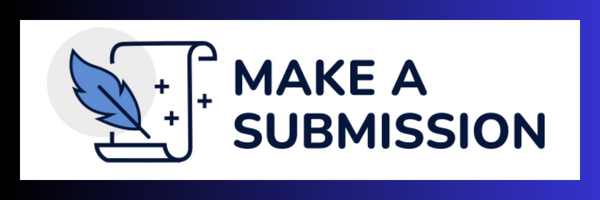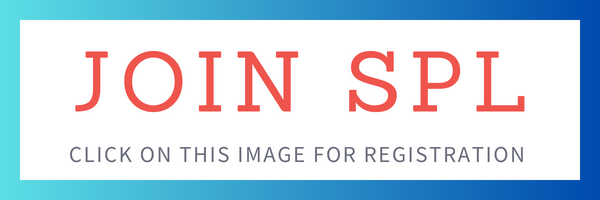Policies of the Journal
The SPL Journal of Literary Hermeneutics is an open access journal. It provides immediate, worldwide, barrier-free access to the full text of all published articles without charging any amount. The readers have all right to read, download, copy, distribute, print, search, or link to the full texts of all articles of the Journal. The journal provides immediate open access to its content on the principle that making research freely available to the public supports a greater global exchange of existing knowledge in humanities. Such type of access is associated with increased readership and increased citation of an author’s work. For more information on this approach, the Public Knowledge Project can be read, which has designed a system to advance the scholarly and public quality of research. This freely distributes the journal system as well as other software to support the open access publishing system in the world.
Policy on Intellectual Property
The SPL Journal of Literary Hermeneutics: A Biannual International Journal of Independent Critical Thinking is committed to upholding ethical standards and respecting intellectual property rights in all aspects of its publishing process. Our policy on intellectual property encompasses the following principles:
- Copyright Ownership: Authors retain the copyright to their original work submitted and published in The SPL Journal. We respect and acknowledge the intellectual property rights of authors.
- CC-BY License: All content published in The SPL Journal is licensed under the Creative Commons Attribution 4.0 International License (CC-BY 4.0). This license allows for the free sharing, adaptation, and reuse of published content, provided proper attribution is given to the original authors.
- Accessibility: The SPL Journal promotes open access to scholarly research, enabling readers and users to access, download, and share articles freely. This accessibility facilitates the dissemination of knowledge and supports academic and non-academic communities.
- Proper Attribution: Users are required to provide proper attribution when using The SPL Journal content, including author names, article titles, journal name (International Journal Online of Humanities), volume/issue numbers (if applicable), year of publication, and DOI.
- No Additional Restrictions: Users may not impose any additional legal or technological restrictions on The SPL Journal content beyond those specified by the CC-BY 4.0 license.
- Non-Endorsement: The use of content from The SPL Journal does not imply endorsement by the journal or its editorial team of the user's specific application or use of the material.
- Archiving and Preservation: The SPL Journal supports the digital archiving and preservation of its content. We encourage repositories and libraries to preserve and disseminate articles in their collections, contributing to the long-term availability of research.
Authors, readers, and users of The SPL Journal content are expected to respect the CC-BY license, provide proper attribution, and adhere to ethical guidelines for academic and research integrity. Our commitment to these principles underscores our dedication to advancing open access principles.
Conflict of Interest Policy
A conflict of interest, alternatively referred to as a 'competing interest,' arises when an author or their employer/sponsor maintains a financial, commercial, legal, political, intellectual, or analogous affiliation with other entities or individuals involved in their research, potentially exerting influence on the author's scholarly endeavors.
Conflict of Interest policy for Author
The author affirms the absence of any conflict or competing interests, whether financial, non-financial, or otherwise, that involve compensation, pecuniary gain, or a vested interest in any form. Furthermore, there are no subjective relationships that may directly or indirectly impact, promote, or influence the delineated work or the associated research paper.
Conflict of Interest policy for Reviewer
Should the reviewer identify any conflict of interest, it is imperative to promptly inform the Editor-in-Chief. Any perceived potential conflicts, whether of a personal, commercial, professional, political, or intellectual nature, whether concealed or overt, must be disclosed to the Editor-in-Chief. Requesting the author to cite the reviewer's own published research papers is deemed inappropriate. Additionally, the reviewer is obliged to maintain confidentiality, refraining from disclosing any information about the assigned manuscript to individuals other than the editor.
Conflict of Interest policy for Editorial Board Members
The utilization of unpublished work for research purposes by the Editor or any member of the Editorial board necessitates prior written consent from the respective author. Editors are mandated to abstain from handling manuscripts in instances where conflicts of interest arise due to competitive, collaborative, or other affiliations with authors, companies, or institutions associated with the papers; in such cases, they should delegate the handling of the manuscript to another Editorial board member. Compliance with The SPL Journal policy requires editors to eschew all financial relationships that could constitute a conflict of interest. Comprehensive disclosure of the sources providing economic or financial support for the project is mandated to preclude any potential conflicts of interest or undue pressures, such as financial or grant-related influences. Any conceivable conflicts, whether personal, commercial, professional, political, or intellectual, whether overt or covert, must be disclosed. Editorial board members are advised against concurrent membership in the editorial boards of other journals to avert potential conflicts of interest.
Submissions from editorial board members
Editorial Board Members are encouraged to contribute papers to the journal. However, such submissions do not receive preferential treatment in comparison to other manuscripts, and the status of being an Editorial Board Member does not influence the editorial evaluation. In instances where an Editorial Board Member serves as an author for a submission, they will be entirely excluded from participating in the editorial review of the manuscript. This entails no access to confidential information regarding the editorial process and no role in determining the decision to publish the article.
Article Withdrawal Policy
Occasionally, authors submit withdrawal requests for their manuscripts after our publication process has concluded. If such requests are made a few days before submission, they are more manageable for us to address. However, if we receive withdrawal requests very close to the publication date, it poses significant challenges. Late withdrawals result in the wastage of resources and efforts invested by editors, reviewers, and our Journal's editorial staff in processing the manuscript. Therefore, authors are strongly encouraged to carefully consider their decision before submitting an article.
Pre-publication withdrawal: Article withdrawn within three days of submission. In that case, send your request with your article ID with article details. Withdrawal will be allowed only for the most enthralling and unavoidable reasons.
Post-publication withdrawal: This type of withdrawal done when any legal disputes or copyright and plagiarism infringements occur.
Consider the following guidelines to prevent article withdrawal:
- The corresponding author bears the responsibility of obtaining consent from all co-authors before proceeding with the article.
- Prior to submission, the corresponding author should engage in discussions with co-authors to address any disparities in data interpretation and resolve differences of opinion.
- Ensure compatibility between the selected journal and its scope with the content of your article before submission.
- Verify whether any No Objection Certificate (NOC) or institutional permission is necessary before submitting the article.
- Conduct a plagiarism check on the article before submission.
- Thoroughly review the manuscript to ensure the accuracy and absence of errors in the presented data.
- Submit the article to one journal at a time, refraining from simultaneous submissions to multiple journals.
- Obtain confirmation from the department or institution regarding the allowance of materials and resources used in the study, and secure permission to use data and information from other sources with appropriate authorization.
- Determine the number of authors and their respective designations well in advance of the article's submission or commencement.
- Confirm the submission of the final version of the manuscript.
Throughout the publication process, the Journal Team will issue multiple reminders. Failure to respond to such reminders grants Journal the right to withdraw or withhold the article.












